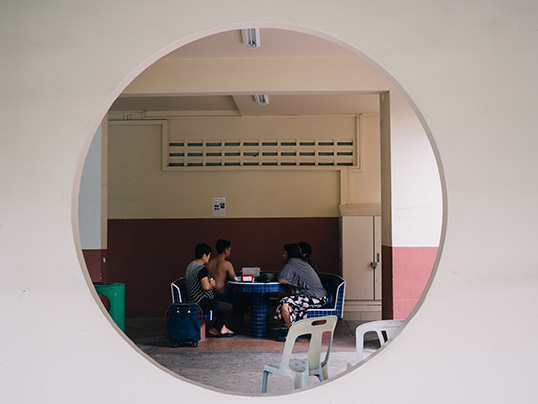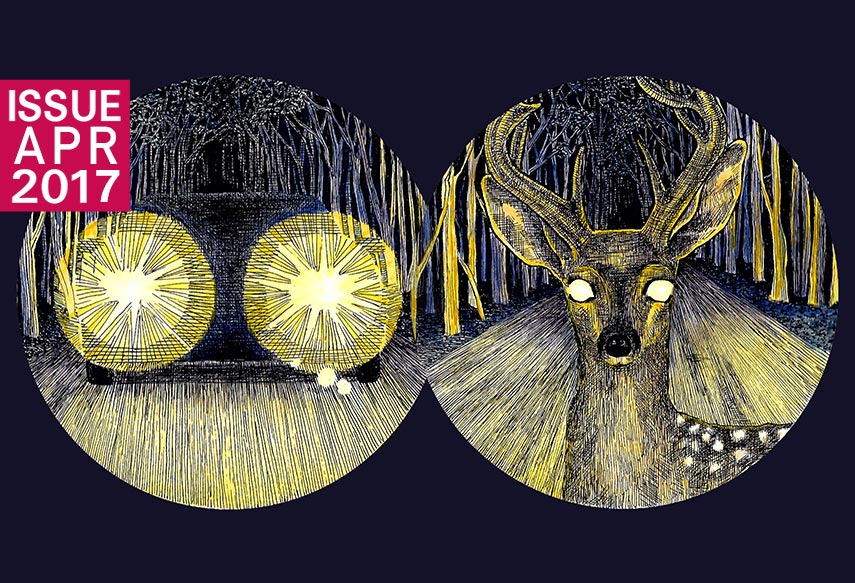Asymptote’s new Winter 2018 issue is replete with spectacular writing. See what our section editors have to say about the pieces closest to their hearts:
It’s a struggle to pick just one poet to highlight from this momentous issue of our journal, but perhaps I will mention the Infrarealist Mexican poet José Vicente Anaya whose work Heriberto Yépez described as “revelation, a sacred practice against brainwashing and lobotomy” (source: translator’s note). Much as each poet in this issue and the set of circumstances in which they write are distinct, I read all their works as sacred, necessary attempts to counter the forces of obliteration and oblivion against which they—and we—strive. In Anaya’s case, a core element of the ritual is híkuri (”peyote” in the indigenous language of Rarámuri), the ingestion of which makes the speaker spiral, psychedelically, inward and outward, so that nothing is quite separate from everything else. The revelation is this: we’ve overbuilt the world and left ourselves broken. Joshua Pollock’s translation recreates the visionary spirit of the hyperlingual source text to bring us the ferocity of lines such as these:
On Superhighways we hallucinate
in order to carry on living, Victor,
let’s build an anti-neutron bomb
that leaves life standing
demolishing suffocating buildings /
new machines working for everyone
so that time raises us
from joy
to Art
to joy / and
HUMANity governs without government
—Aditi Machado, Poetry Editor
“[there are also] a number of young writers who are emerging, for instance, in the Gambia, who are also catering a lot to the local market. They are to come.”— Tijan M. Sallah at an interview at the Library of Congress, Washington DC, 2012
It is impossible to think of Gambian literature without thinking of the poetry, short stories, and essays of Tijan M. Sallah. Sallah is The Gambia’s most renowned and prolific literary figure, but what makes him most remarkable is his generosity. Sallah, like many of the great Gambian writers before him, balanced his “day job” while continuing his tireless support of other writers and The Gambia’s burgeoning literary scene. For writers such as Lenrie Peters, it was being a medical doctor, while holding literary workshops for aspiring young Gambian writers; for Tijan M. Sallah, it was a successful career as an economist at the World Bank, while continuing to foster community among the Gambian diaspora’s literary voices, his early contributions to the Timbooktoo Bookstore, or even—lucky for us at Asymptote—his willingness to write this essay on some of The Gambia’s emerging poets. Sallah’s essay is both a tribute to the previous wave of Gambian writers and a passing on of the baton to the next generation of poets. In this essay, he spotlights three of the exciting new voices in the Gambian literary landscape today. It’s a must-read from this issue.
—Ah-reum Han, Writers on Writers Editor






